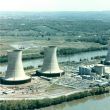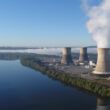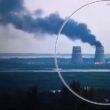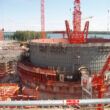GNEP’s true success–restarting the nuclear power debate
By Alan Hanson, September 22, 2008
A valid criticism of the Global Nuclear Energy Partnership (GNEP), at least as it was originally conceived, is that it focused too much on preferred technologies, without first obtaining an international or domestic consensus on the basis for their selection. Miles Pomper made an invaluable contribution to this discussion when he advised that we “focus on first principles, then technology.” Let’s take his advice and examine the principles.
The fundamental assumption underpinning this discussion (and GNEP itself) is that the world is about to embark upon a global expansion of nuclear power. The consequences of such an expansion will be an increased demand for fissile atoms and an increased amount of used nuclear fuel produced. Both of these consequences could be problematic, and both also are connected to the overarching fear of increased weapons proliferation.
The vast majority of nuclear reactors operating today, and in the immediate future, are light water reactors fueled with enriched uranium. Therefore, more reactors will require more uranium and more enrichment capacity. Enrichment technology can be used to produce nuclear fuel or at higher enrichment levels, weapon-grade material. Because of its dual-use capability, it would be desirable to find ways to limit the spread of enrichment technology in a noncoercive manner. Thus, GNEP’s focus on assured-supply mechanisms, a concept that Stephen Goldberg has already elaborated upon.
The other source of fissile atoms is the used fuel from light water reactors that contains not only residual unfissioned uranium 235 but also fissile plutonium. It’s possible to recover the residual uranium and plutonium from used fuel by a process generically referred to as reprocessing. Again, we are confronted with a dual-use technology because reprocessing can separate plutonium from used fuel to create new fuel or to construct a nuclear explosive device. GNEP, as originally conceived, advocated for the development of “proliferation-resistant” reprocessing technology to deal with this problem. I must again agree with Miles that the term “proliferation resistant” isn’t only undefined but also glibly used. Any sophisticated separations technology has the potential for abuse. But this doesn’t mean that it must be proscribed.
The potential increase of used fuel worldwide was another driving force behind GNEP. While an accumulation of used fuel doesn’t present a significant proliferation risk in the short term, over the centuries as the self-protecting radiation barrier decreases, recovering plutonium from the fuel becomes easier. GNEP originally offered a resolution to this by proposing to take back spent fuel, develop advanced separation technologies, and burn separated actinide elements in fast neutron reactors. This is a good vision but not something that could be accomplished in the next few decades. The technology isn’t yet proven. That said, I’m not as pessimistic as Tom Cochran about their eventual availability; almost every successful technological innovation is built on a foundation of prior failures from which lessons are learned for subsequent improvements.
But since fast reactors aren’t on the immediate horizon, the destruction of fissile plutonium in the near term must be done using existing light water reactors. The Energy Department has incorporated this possibility into GNEP. Of course, this hasn’t been well received by those who say reprocessing and reuse of spent fuel shouldn’t be done for fear of proliferation. Yet, safe and proliferation-resistant fuel recycling has been demonstrated in Europe and soon will be demonstrated in Japan and probably in China. The sophisticated technology needed to do this properly (and to make improvements to eliminate the production of pure plutonium) and the massive investments necessary to build these recycling facilities should assure that they’re few in number. As with other aspects of GNEP, coercion and prohibition shouldn’t be necessary to achieve the desired outcome.
Regardless of how GNEP proceeds, it has already accomplished worthwhile objectives such as opening a multilateral dialogue among nations and challenging old assumptions about nuclear power. GNEP has already evolved into an important forum for discussion rather than negotiation as desired by Jill Parillo.
Topics: Nuclear Energy
Share: [addthis tool="addthis_inline_share_toolbox"]














